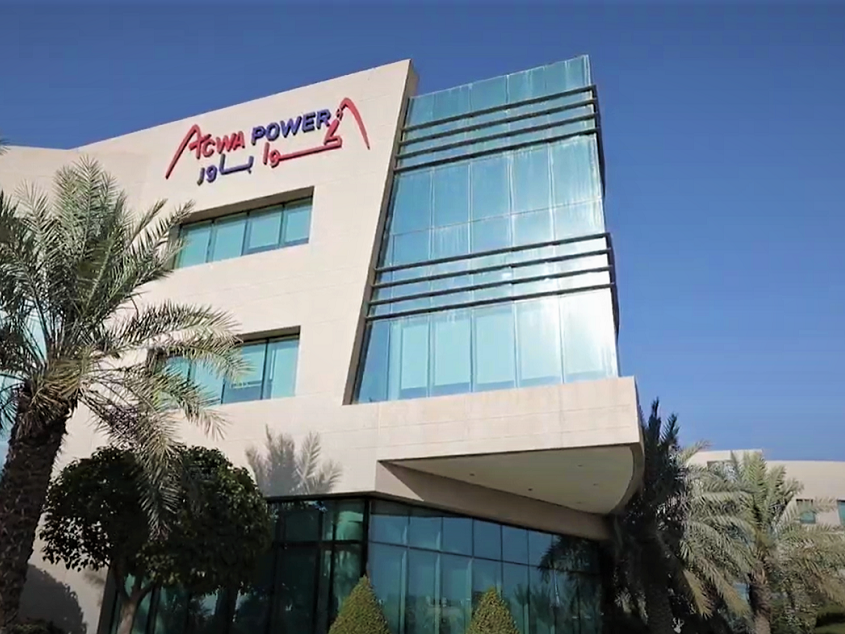The ACWA Power rights issue is making headlines as the company plans to raise up to $1.9 billion through a rights offering that may also include a rump offering. This strategic financial move is designed to strengthen the company’s balance sheet, support ongoing projects, and fund future growth in the renewable energy sector.
In this article, we explore what the ACWA Power rights issue means, the reasons behind it, the potential impact of a rump offering, and what shareholders and investors should expect.
What is the ACWA Power rights issue?
A rights issue is a method companies use to raise money by offering existing shareholders the right to purchase additional shares at a discounted price. This allows shareholders to maintain their proportionate ownership if they choose to invest more.

In the case of ACWA Power, the company aims to raise approximately $1.9 billion through this rights issue. The funds will be used to finance new renewable energy projects, reduce existing debt, and strengthen the company’s overall financial position.
This fundraising strategy is a common tool for companies looking to raise large amounts of capital quickly while giving priority to their current investors.

Why is ACWA Power raising funds now?
ACWA Power is a leading developer and operator of power generation and water desalination plants, with a focus on renewable energy in the Middle East, Africa, and Asia. The company has ambitious plans to expand its portfolio, especially in solar and wind power projects, which require substantial capital investments.
The renewable energy market is growing rapidly, and competition is increasing. To keep pace, ACWA Power needs fresh funds to bid for new projects, invest in cutting-edge technologies, and maintain operational excellence.
Additionally, the company carries significant debt from past acquisitions and project developments. Raising funds through a rights issue will help ACWA Power manage and reduce this debt, improving its credit profile and reducing financial risks.
Understanding the rump offering in the ACWA Power rights issue
A rump offering happens after the main rights issue if some shareholders do not fully subscribe to their allotted shares. The leftover or “rump” shares are then sold to other investors, often institutional buyers or the public.
Including a rump offering in the ACWA Power rights issue plan means the company can ensure it raises the full $1.9 billion target even if some shareholders do not take up their rights.
This flexibility is important because it helps avoid delays or shortfalls in fundraising. It also provides an opportunity for new investors to participate in the company at a potentially attractive price.
How does the rights issue affect existing shareholders?
Existing shareholders get the first option to buy new shares at a discount through the rights issue. This offers a chance to increase their investment at a lower price than the market rate.
However, if shareholders decide not to take up their rights fully, their ownership percentage will decrease due to dilution when the leftover shares are sold in the rump offering.
Dilution means shareholders will own a smaller piece of the company, which can affect the value of their investment in the short term. But if ACWA Power successfully uses the raised funds for profitable projects, the overall value of the company could increase over time.
ACWA Power’s recent financial health and growth

ACWA Power has demonstrated steady growth over the past few years, winning major contracts and expanding its renewable energy portfolio. The company is involved in some of the largest solar power plants in the Middle East, alongside wind and water projects.
Despite this growth, the company faces challenges such as high capital costs for new projects and financial obligations from earlier expansions. Its net debt stands at a level that requires careful management to avoid credit issues.
The $1.9 billion rights issue is a clear signal that ACWA Power is proactively strengthening its financial base to support sustainable growth.
Why $1.9 billion is a significant amount for ACWA Power
The target sum of $1.9 billion is substantial and highlights ACWA Power’s ambitious plans. This capital injection will fund multiple projects simultaneously, enabling the company to bid for new contracts and accelerate ongoing work.
In the renewable energy industry, large-scale projects often require upfront investment before generating revenue. Having strong cash reserves allows ACWA Power to take on these projects with confidence.
Moreover, the funds will also help refinance expensive debt, reducing interest costs and improving profitability.
The market’s reaction to the rights issue and rump offering plan
The announcement of the ACWA Power rights issue has attracted interest from investors and analysts. Some see this as a positive step to future-proof the company by giving it more financial flexibility.
Others caution that the success of the rights issue depends on shareholder participation and market conditions. If demand is weak, the rump offering will be critical to fill the gap, but it could signal lower confidence among existing shareholders.
ACWA Power’s share price may experience volatility during this period as investors adjust their positions based on the rights issue terms.
What happens after the rights issue and rump offering?
If the rights issue and rump offering go as planned, ACWA Power will have a stronger balance sheet and increased funds for investment. This could lead to new project wins and improved earnings in the coming years.
The company is likely to focus on expanding in emerging markets, especially in clean energy, where demand is growing rapidly due to climate change goals.
Stronger finances will also help ACWA Power negotiate better terms with lenders and partners.
Risks investors should consider
While the rights issue offers opportunities, there are risks involved. The main risk is dilution if shareholders do not fully participate, which can reduce the value of existing investments.
There is also the risk that the funds may not be deployed effectively, or new projects may face delays or cost overruns.
Market conditions, such as interest rates and investor sentiment towards energy stocks, will influence how well the rights issue and rump offering are received.
How ACWA Power compares with peers in the industry

Many renewable energy companies raise capital through rights issues or share offerings to fund growth. ACWA Power’s approach is in line with industry norms, showing it is actively managing its capital structure.
Compared to peers, ACWA Power’s focus on the Middle East and Africa gives it a unique position in high-growth markets with increasing government support for clean energy.
Successfully completing the rights issue will help it maintain a competitive edge against global players.
What shareholders should do next
Shareholders should carefully review the terms of the rights issue, including the price and ratio of shares offered. Understanding their rights and options will help them make informed decisions.
Participating in the rights issue could be beneficial if shareholders believe in the company’s growth prospects. However, those uncertain about the company’s future may choose to sell their rights or avoid further investment.
Investors should also monitor market updates and ACWA Power’s announcements for any changes in plans.
Conclusion
The ACWA Power rights issue aiming to raise $1.9 billion, including a possible rump offering, is a critical step in the company’s growth story. It reflects ACWA Power’s need for capital to fund new renewable energy projects, reduce debt, and strengthen its financial position.
The inclusion of a rump offering provides flexibility to meet fundraising goals despite uncertain shareholder participation. While there are risks such as dilution, the potential benefits of a stronger balance sheet and new project opportunities make this move significant.
For shareholders and potential investors, understanding the details of the rights issue and its impact is essential to making the best decisions.
Read More: Dubai’s EIGHTClouds secures $20 million funding to boost expansion plans












